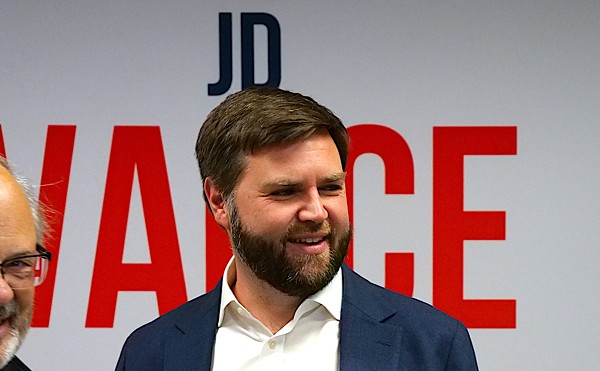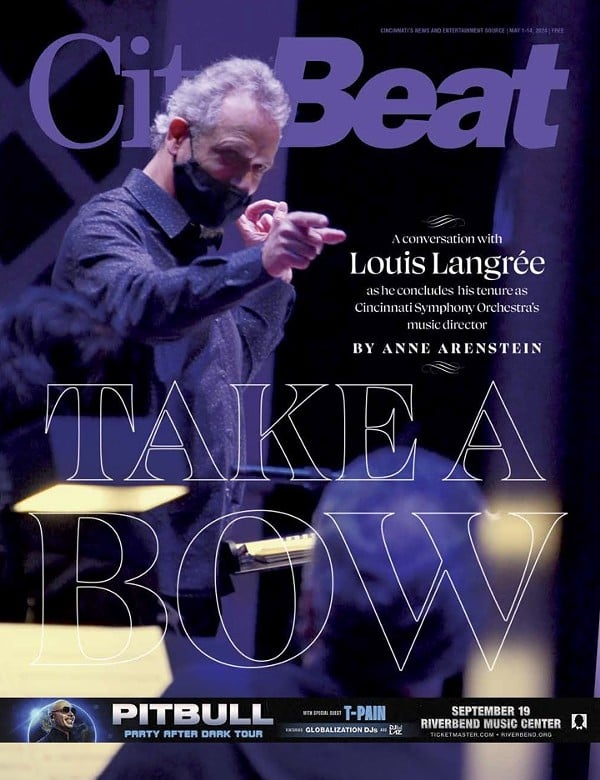|
Those immersed in the literary world are notoriously dedicated. Who else but book lovers would wait in line at midnight for the next edition of Harry Potter?
Then there are the writers. Some authors spend years producing a manuscript. Many take days to craft the perfect lead sentence, only to wait six to eight weeks for an editor to read it. I've even seen a fellow writer scribbling a plot outline on the back of her grocery list at Kroger. It's all in the name of great literary pursuits.
But writers also experience rejection — from editors, family members and even themselves. Here's a sampling of local organizations to help writers get out of that funk and onto the printed page.
Women Writing for (a) Change offers a host of opportunities for writers to gather, and it's not just for women anymore.
A selection of classes are geared toward men, and WWf(a)C consults with many organizations and businesses that are co-ed. The group also offers semester-long classes, shorter workshop series, retreats and a wide variety of courses.
Founder Mary Pierce Brosmer says these classes are "a regular place to bring writing where listeners are schooled to be supportive. Teachers bring prompts and exercises to inspire writers. It's as much about community, with writing at the center."
WWf(a)C started in 1991, and some women have been taking or teaching classes since the beginning, with a few breaks here and there. Brosmer says she started the organization because she felt it was important to provide a voice for women as well as a conscious community of listeners and readers.
"I took it one step at a time," she says. "I love the work, so I stay busy. I'm disciplined in my own writing, and I think writers who have a schedule can get the most writing done."
Certainly no one can accuse Brosmer of being a slacker. Her organization has grown by leaps and bounds over the years, mostly through word of mouth. WWf(a)C didn't spend money on advertising until 2002.
Brosmer says the organization is unique because of the process she utilizes to tap into unknown writing subjects. The group uses "non-scary, non-religious" rituals to delve into people's unconscious.
"We come together to create a safe place in order for writers to go to an unsafe place," she says. "That's where I think all the best material comes from, from the unconscious."
Besides the writing arm of the organization, Brosmer has expanded to include the Women Writing for (a) Change Foundation. Started in 2000, this nonprofit organization brings classes to those who might not be able to afford them. The foundation also raises scholarship funds for women and girls.
From October to January, WWf(a)C is offering classes free of charge for any interested writer. The next class is 7-9:30 p.m. Oct. 11. (For more information, call 513-272-1171 or check out womenwriting.org.)
The inspiration for InkTank, an organization that supports local writers, came from best-selling author Dave Eggers. While on a book tour in 2003, he challenged audience members to think about creating an effective literary center. Kathy Holwadel was immediately onboard. She and three other idealistic, energetic volunteers founded the Cincinnati arm of the nonprofit organization in January 2004.
"There are a lot of wonderful, bizarre, crazy people who volunteer here," Holwadel says. "When you walk through those doors, you have to take on a ridiculous amount of responsibility. We really think we're changing a city."
One way InkTank strives to make waves is by reaching out to those in the community. The organization offers quiet workspaces and free WiFi service and also acts as a hub for writers to meet and get feedback on their work. The organization also sponsors many different programs, including an annual Writers Weekend (no date set yet for 2006).
The backbone of the group, however, is the Word on the Street program. Every Wednesday at 2-6 p.m., anyone can come through the doors and write a personal story. InkTank will then buy it for $2 per piece. Holwadel says this creative structure mixes together the people of Cincinnati.
"We hook up people that otherwise wouldn't have a chance to meet," she says. "We bring together someone from Anderson Township with someone from Over-the-Rhine. Personally, I think it's an incredible window into the life of someone else who's experienced totally different things."
So it's like creating a community-wide writing workshop?
"We're not just encouraging people to write," she says. "We try to find a way to get their words out to others. We're constantly thinking of new and exciting things to do. Sometimes we have up to 20 different programs going at once."
InkTank's World Headquarters are housed in a retail operation/thrift store in Over-the-Rhine called Rubbish that helps pay the groups' bills. InkTank also organizes writing workshops or projects with high school-aged writers, including the Freedom Project, an endeavor that asks local students to contribute essays on the topic of freedom for a book that Eggers will eventually fund.
In addition, the center holds open mic nights for those in the literary community as well as the Loudnmobile Poetry Series (formerly Moveable Feast), a series of monthly readings that brings together poets to showcase their work in various locations around town. (For more information on any of the InkTank's various projects, call 513-542-0195 or check out inktank.org.)
Libraries are an often overlooked source for writing inspiration. The Delhi Branch of the Cincinnati Public Library, for instance, blocks off space for aspiring writers to chat, write and critique. On the second Tuesday of every month at 7 p.m. in a room full of windows, both published and persistent writers can learn from each other and from monthly speakers brought in to provide their opinions.
Carol Skilbeck, the group's organizer, says she tries to bring in speakers versed in a variety of genres while leaving time for peer critique.
"I think there's a lot of untapped talent in this area," she says. "It can be very defeating being a writer; sometimes no one will look at your work. Here we have a community of like-minded people who can give feedback and encouragement. That's important — to get encouragement to keep writing."
The Delhi branch also holds a monthly book club that Skilbeck says "keeps people intellectually on their toes."
There are adult book clubs at many other locations and some writing programs for teens, so check with your neighborhood library for more details. (For more information on events at the Delhi branch, call 513-369-6019. For more information on events throughout Cincinnati, call 513-369-6900 or check out cincinnatilibrary.org.)
For those with dramatic flair, turn to the Cincinnati Playwrights Initiative (CPI). This organization brings together local playwrights, directors and actors to develop new plays and perform them on the Cincinnati stage.
"The CPI was started to give local writers a chance to get their work presented in a public space," says President Phil Paradise. "Writers get feedback from a live audience and a chance to work with actors and directors to see how people respond to their play."
CPI's New Voices Series is such a vehicle. After a reading, audience members are encouraged to give their input.
"There are lots of groups for fiction writers (and) poets; there's even a group or two for screenwriters," Paradise says. "But this is the only one I know of for playwrights. First-time writers get excited when their plays are performed because it's usually the only place their work has been shown in public. And the actors benefit, too, because they get a chance to read a new play and give their input."
CPI also hosts a developmental workshop, which is more than just a public reading — it's one step closer to a full production. Actors move around the stage and go through the motions while reading. Again, the audience can give their input after the finale.
To submit a play, one must be a CFI member, which costs $15 annually. The next reading is 7:30 p.m. Oct. 11. The series season runs from October to May. (For more information, call 513-241-5154 or log onto cinciplaywrights.org.)
Writing is tough. Sometimes self-doubt takes over or rejections from editors or harsh critiques from peers flood in. Or perhaps you finally set aside time to write but immediately hit writer's block.
When these issues plague your writing spirit, head to any one of the above groups for moral support and a pat on the back. ©





